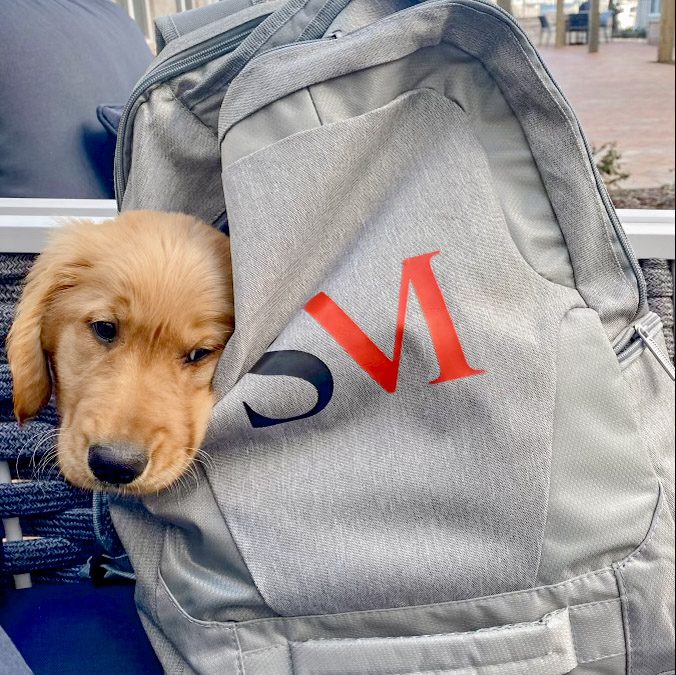Moving to a new apartment or townhome can be the start of a new beginning, but it also brings with it a lot of change. While you and your pet may have much to look forward to in your new home, the changes and stress that come with moving can be overwhelming – especially for your dog.
Dogs like routines and structure, and the massive life changes that come with moving can be unnerving and anxiety-inducing for him. While you can’t make your move a complete breeze and stress-free for him, you can take steps to help him adjust to your new home with more ease. Whether it’s keeping his familiar belongings and toys nearby and sticking with your usual routines or giving him extra love, attention and time together, the choices you make can make a huge difference on how he adapts.
Here are simple tips to help your dog adjust to your new home.
Keep Old Routines
Dogs are creatures of habit, and all of the changes that come with moving and settling into a new home can be stressful and confusing for him. Try to maintain the same general routine, before, during and after your move into your new home. If you always take your walks at 7 am and 7 pm, keep it up. Feed him at the same time, and schedule time to get down on the floor and play with him – all at regular and consistent times. Sticking with a consistent routine can be difficult if your job changes or you’ve moved to a new time zone, but try to maintain some elements of your existing schedule as much as possible.
Stick With His Bedding & Toys
Your move might prompt you to toss crusty toys and his smelly, old bedding, but don’t replace his belongings just yet. Having his familiar smells in your new apartment will help him to adjust and ultimately feel at home. If you can hang on to as much of his gear as possible for the first few weeks, it’ll go a long way to helping him relax and get comfortable.
Extra Attention & Quality Time
Moves are stressful for everyone, especially for pets who can’t speak and understand what the changes are all about. Channel your own stress into giving extra love, cuddles and attention to your pup. Whenever possible, spend quality time together doing the things you love – taking long walks or jogs, throwing the ball, hiking or just curled up on the couch together. The more positive feedback and love he receives during these stressful times, the better he will feel.
Treats, Rewards & Repeat
Positive feedback, rewards for good behavior and treats on repeat will all help your pup to get the signal that good times are here. You can leave kong treats for him when you leave for work to help distract him. Reward him for even the smallest of good behaviors and make a big deal out of his return to normalcy. You’d be surprised how consistent reassurance and positive feedback can give him the confidence boost he needs to adjust more smoothly. And what dog doesn’t feel better after a few treats?
Be Patient
No matter what, remember to be patient and give your pup time to adjust to your new home and life. Dogs are territorial, and their homes are important to them. Changing up their lifestyle and living space can feel unsettling at first, and some dogs may take longer to adjust than others. Try not to see an uptick in problem behaviors as a sign that your dog is regressing. He’s probably just having a hard time adjusting, and may need extra TLC to get to the other side. If necessary, talk to your vet and seek out professional support from a local behavioral trainer who can help support you and your dog in the transition.


